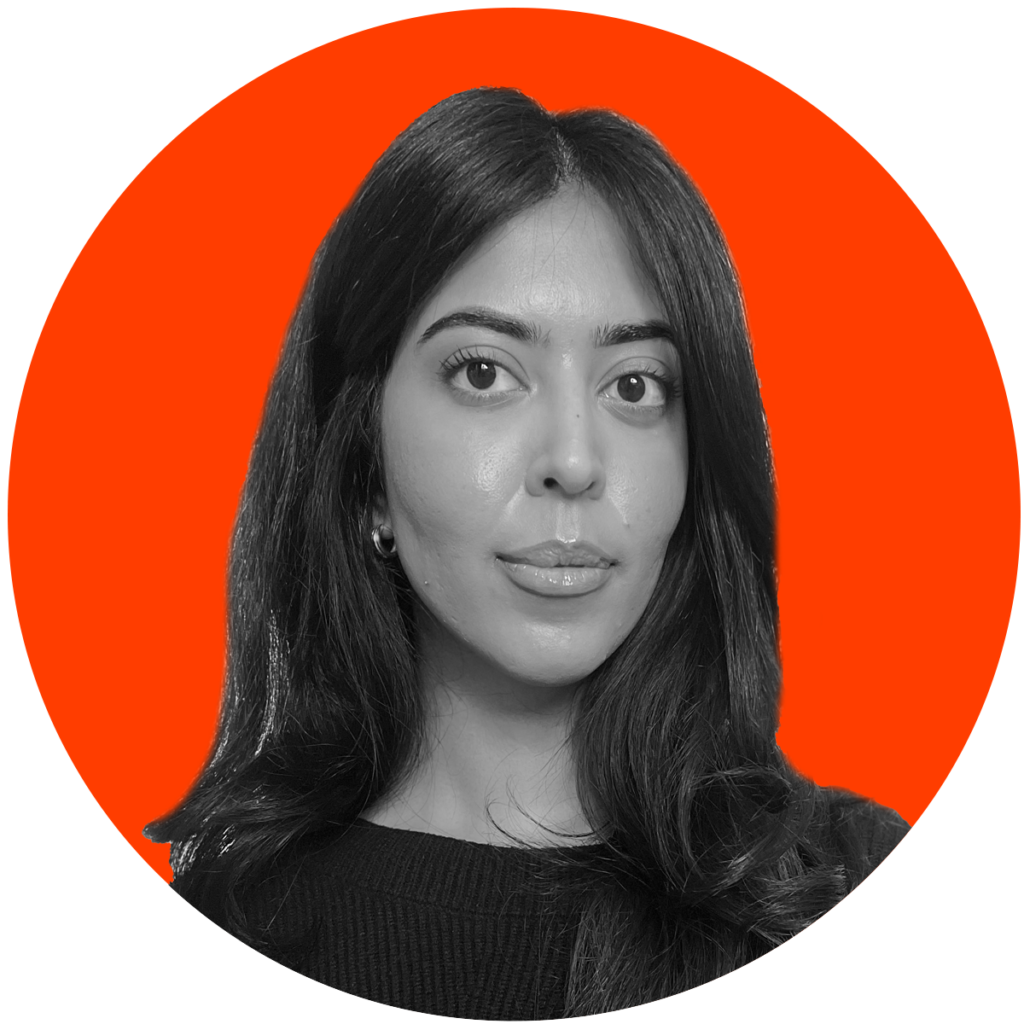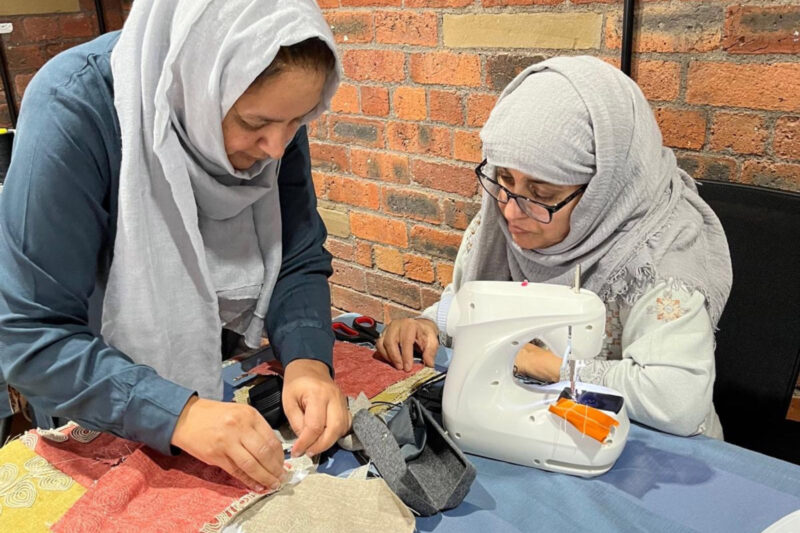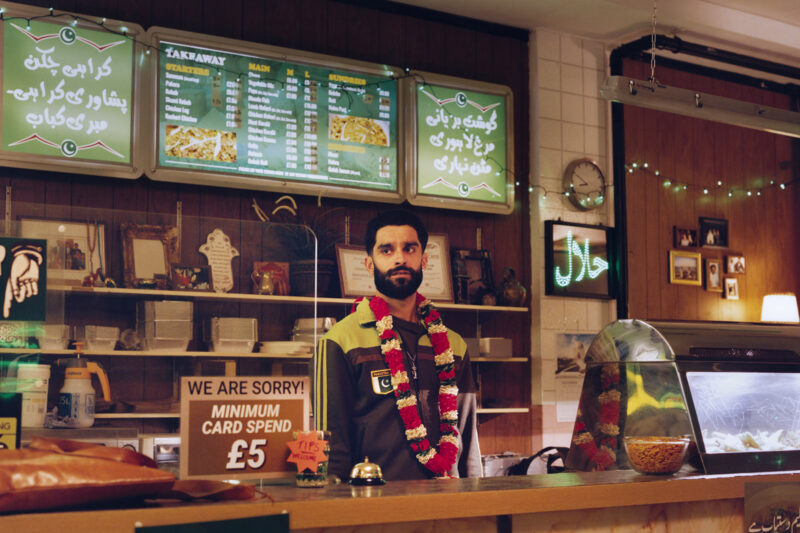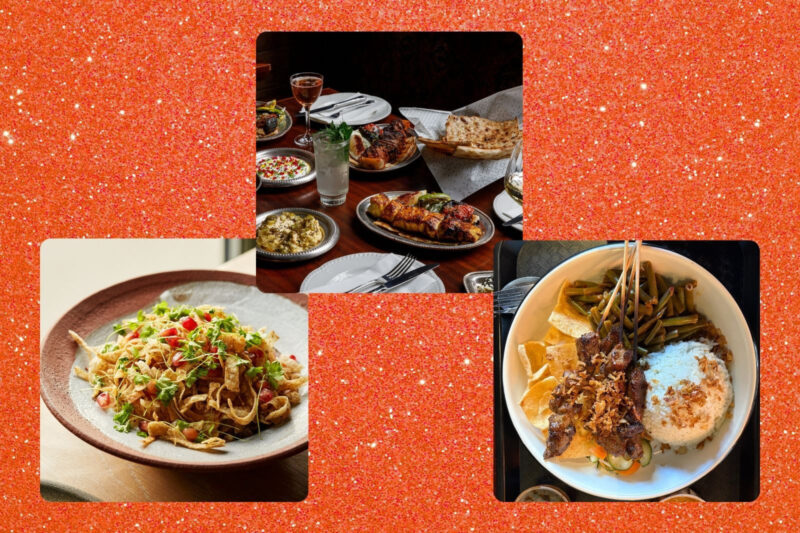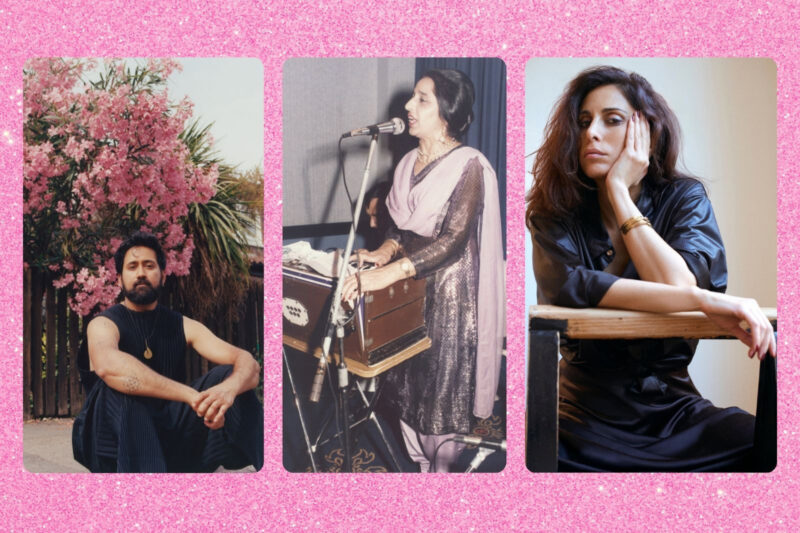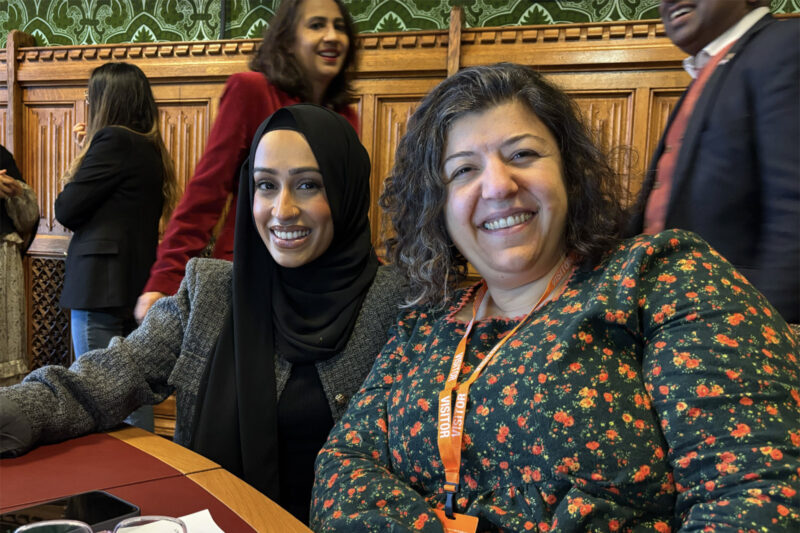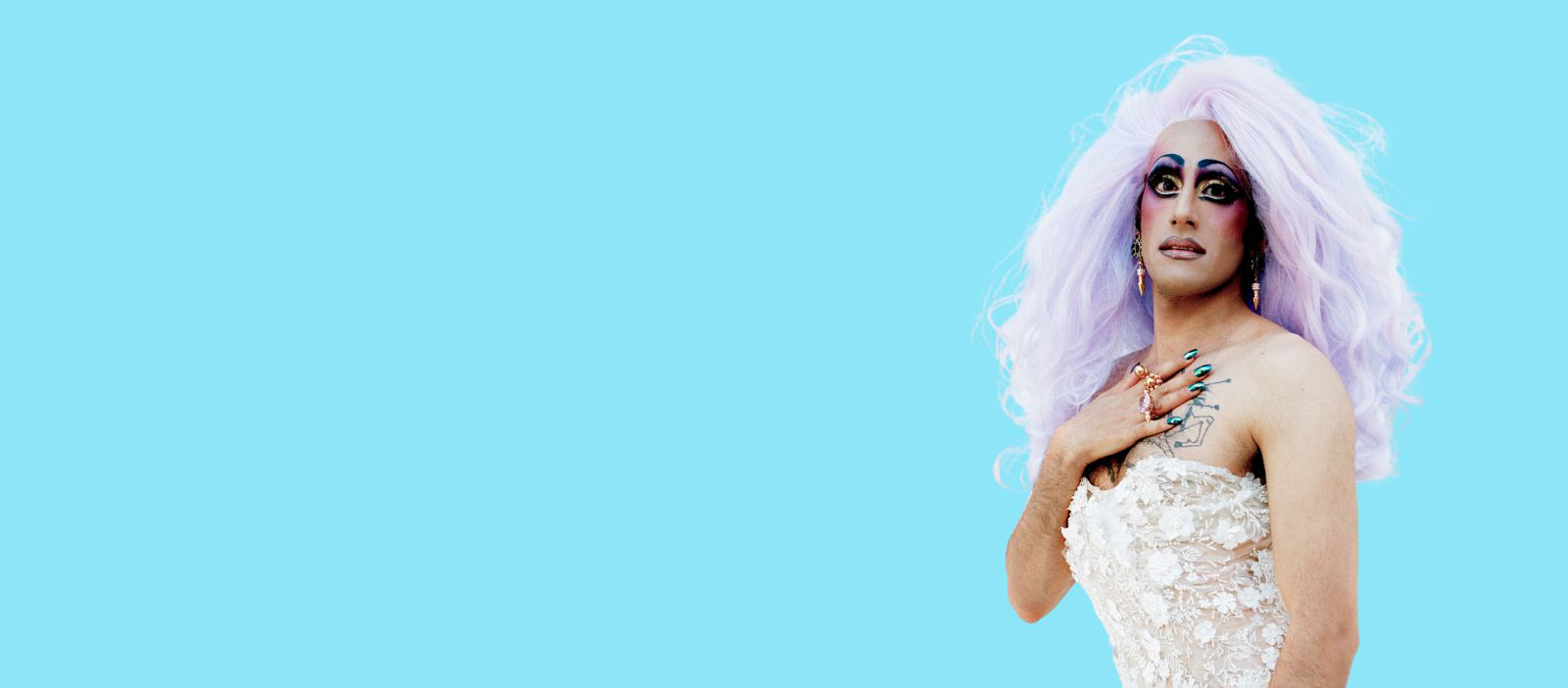
Amrou Al-Kadhi: ‘Drag is like a love letter to my mother’
British-Iraqi writer and performer Amrou Al-Kadhi’s debut feature film is a romance about a drag queen named Layla. Photograph by Harry Carr, courtesy of Amrou Al-Kadhi
The writer, director and drag artist on their new film Layla, and their enduring and complicated relationship with their mother
Amrou Al-Kadhi, 34, is British-Iraqi drag performer, writer and filmmaker based in London. They first created their alter ego, the flamboyant and colourful drag queen Glamrou, in 2010, while studying art history at Cambridge University.
Almost 15 years on from that first performance, Al-Kadhi’s debut feature film, a romance about a drag queen named Layla, is set to premiere in UK cinemas on 22 November.
Inspired by their own experience, Al-Kadhi said they wanted to make a film about a drag queen who is “confident, fearless” and “uncompromising in many ways”, yet “compromises everything they have fought for in the thrust of romance”.
Their autobiography, Life as a Unicorn: A Journey from Shame to Pride and Everything in Between, was published by HarperCollins in 2019.
This interview has been edited for length and clarity.
How does it feel that Layla will soon be out in the world?
I’ve made shorts, but this is my first feature film. We did Sundance festival earlier this year, which was major and really full on, but it helped me prepare for the scale of things. It’s always nerve wracking, but I’m excited it’s going to be in cinemas and that people will be able to enjoy it. It’s a very joyful film.
Can you tell me more about the story?
Layla is about an Arab drag queen who is very confident and uncompromising on stage, but they have learned to code switch and change who they are in order to please their family and their lovers. It’s a film about how queer people of colour are forced to augment who they are in order to move through the world. Layla is in drag all the time in the film, in the sense that they change who they are with their family and when they fall in love for the first time, and they change who they are with their friends.
There’s not much external trauma in the story, in that there’s no major racism or homophobia. It’s just a queer Arab partying and trying to have a great love life. Everyone is wearing absurdly beautiful clothes and the places they live are really iconic. It’s like a queer fairytale. It’s vibrant, and I hope in this very bleak world it will give people a place to escape.
What does performing in drag mean to you?
I tend to perform when there’s a real urgency of something to say. Drag performance is where I get to express myself in the most immediate way and really communicate to an audience right there in front of me.
I really like the line between trauma and comedy, and darkness and light, and I think all my shows are always on the edge of “are you allowed to laugh at this?”, “this is harrowing but kind of hilarious”. But it takes a while to get it right.
Are you working on new material now?
I’ve been trialling out some new material over the summer, which I’m now going away and thinking about. I got out of a very complicated romantic relationship this year. It really helped me think about my own family and why I ended up in a relationship that was so harmful. Now that I’m coming out of that, I’m assessing what it was about my upbringing and my model relationships that led to that.
I’m going to do a show where I dress as my mother and become her, and tell the story of our relationship but from her perspective. It’s the story about her treatment of me — good and bad — but all from her perspective.
Your relationship with your mother has featured in a lot of your work. Can you share more about this?
It’s an enduring, complicated relationship and it has no easy answers. My mum and I were extremely close when we were younger, but we fell apart when I started doing drag and I was coming out as gay. It really upset her because of what the community would think, and because of her own beliefs. We later became close again after some reconciliation.
But instead of seeing it as differences between us, I’m really interested in the things that unite queerness and womanhood in terms of violations by the patriarchy, the expectations to be a certain way, and being seen as less than.
I can understand why my mum has had a hard time seeing me dress as a woman, when there have been so many expectations put on her as a Muslim woman. For her, I think it’s “why would you want to dress in drag when you have the freedom and power of being a man?”.
A part of the reason I love drag is because Arab and Muslim women were some of the strongest people I saw when I was living in the Middle East, and I like to celebrate that when I’m in drag. In that sense, drag is like a love letter to my mother.
How has your relationship with Islam changed over the years, and what does it look like now?
It’s always “to be continued”. I had a really negative experience with Islam growing up, but it wasn’t all bad. I personally believe that no child should have to learn about hell.
There’s also a difference between Islam and Arab culture, and I think I’m still working through detangling what was actually Islam and what was actually just conservative culture.
Islam is definitely always going to be a part of my life. There’s lots of beautiful things in the Qur’an around generosity and kindness, but there’s also things I disagree with.
Does drag culture and the community provide a sense of comfort to you?
Comfort is an interesting word. I have a lot of anxiety. I ruminate a lot, I can be depressed. I’m often very self-punishing too. There’s something about performing where you are really present, and it’s just you and the audience, and there’s nowhere for your mind to go besides where you are in that room. It’s comforting in that way.
And there’s something about being in drag where you get to be confident and proud of yourself, and in that sense I think it is very comforting.
Layla is in UK and Irish cinemas from 22 November.
 Newsletter
Newsletter

